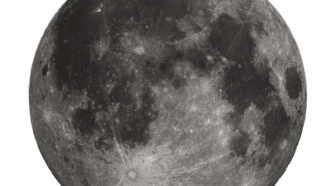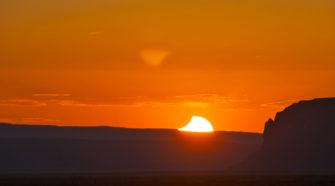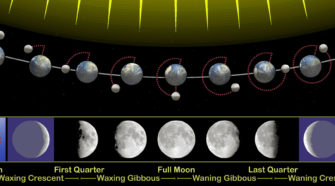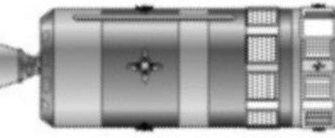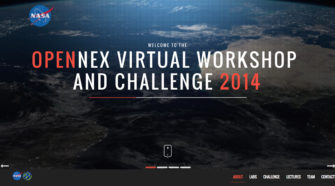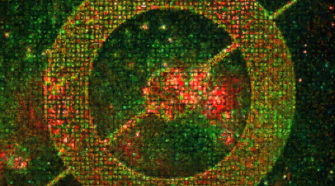Education
All about the Earth’s moon
As this issue commemorates 45 years since the first human placed foot on the Moon it seems rather fitting to feature the Moon in this astronomy item. As we all know the Moon is our nearest astronomical body at about a quarter of a million miles or 405,000 Km away. Unlike other planets in our …
Take a closer look at the Moon
Observing the Moon The object of the month this time is the closest celestial body to us: The Moon. The Moon plays a big part in Astronomy for a number of reasons, the main one being light. Although the Moon does not generate light itself, it acts as a giant reflector for the sun. When …
Moon phases: Past, present and future
Take a look tonight at the Moon. What lunar phase do you observe? If you and your students want to learn more about the lunar phases before studying the night sky, we recommend: http://bit.ly/RShiwaay. Observing the Moon night after night and either photographing the phase or drawing it, is a good way to understand the …
The new Eagle has landed (via the Boeing Space Tug)
Vocabulary •Landing Kit: Includes the lunar landing legs, infrastructure, landing radar, etc. •Lunar Investment: The amount of money needed to fully fund a mission to the Moon •Lunar Material: A certain substance that can only be found on the Moon •Powered Ascent Initiation (PAI): The lunar liftoff ∆V requirements equal to 1,890 mps •Powered Descent …
NASA launches Earth science challenges for general public
NASA is launching two challenges to give the public an opportunity to create innovative ways to use data from the agency’s Earth science satellites. The challenges will use the Open NASA Earth Exchange. OpenNEX is a data, supercomputing and knowledge platform where users can share modeling and analysis codes, scientific results, knowledge and expertise to …
Zooniverse enables anyone to participate in science
The advent of faster, digital data capture and processing has been a boon in astronomy but created a problem of too much data to analyse with too few professional astronomers. In July 2007 University of Oxford based astronomer and BBC Sky at Night presenter Chris Lintott and a team of astronomers from the University of …

